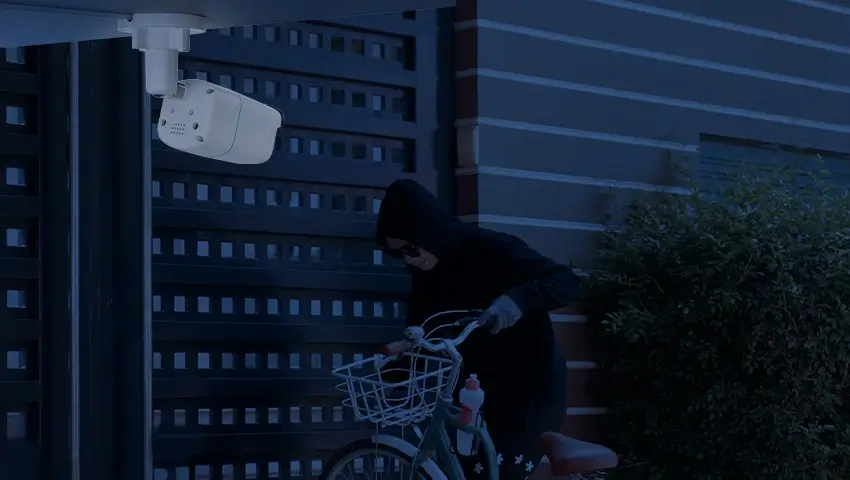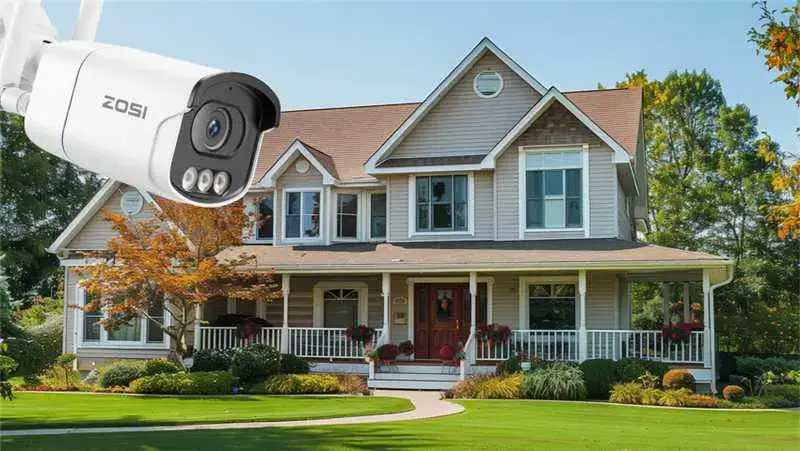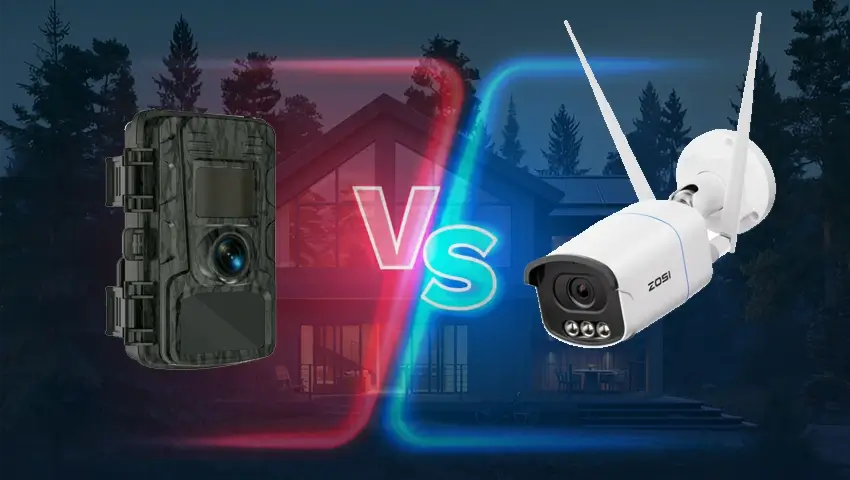In today’s tech-driven world, security cameras are an essential part of ensuring safety for businesses, homes, and public spaces. These devices capture vital footage that can be used in various scenarios, from identifying suspects in criminal cases to verifying the sequence of events in disputes. Often, law enforcement officers will request access to security camera footage to aid in their investigations. Whether it’s a burglary, a case of vandalism, or even missing person inquiries, surveillance footage can provide crucial evidence that helps solve cases.
Understanding your rights, the legalities involved, and the steps to follow when the police request security camera footage is essential. This guide will walk you through the process, helping you make informed decisions while balancing cooperation with law enforcement and respecting your privacy.
Contents
Legal Basis for Requesting Security Camera Footage
When police request security camera footage, it’s important to know that there is a legal framework guiding these requests. While law enforcement officers may ask for access, in most cases, they don’t have the automatic right to take the footage without consent or a legal order.
1. Voluntary Cooperation:
In many cases, property owners voluntarily provide footage to the police without any legal requirement. This is common if the footage clearly shows a crime being committed or involves an investigation where the property owner wants to assist.
2. Warrants and Subpoenas:
If you refuse to hand over footage, police can obtain a court order, such as a warrant or subpoena, depending on the situation. A warrant is generally issued when there is strong evidence linking your footage to a crime, while a subpoena may be used in more general investigative situations.
3.Rights of Property Owners:
As a property owner or tenant, you generally have control over the footage captured by your security cameras. Police can’t force you to provide access unless they present the proper legal documentation. However, failing to comply with a legitimate subpoena or court order could lead to legal consequences.
Understanding your rights regarding security camera usage is crucial. To delve deeper into the legal landscape surrounding outdoor surveillance cameras for homes, please refer to Laws on Outdoor Surveillance Cameras for Home.
Steps to Follow When Police Request Security Footage
When law enforcement approaches you to request footage, it’s important to handle the situation carefully. Here’s a step-by-step guide to ensure you’re following the proper procedures.
1. Verify the Request:
Ask for identification and verify that the person requesting the footage is indeed a law enforcement officer. This includes checking their credentials and ensuring that any paperwork presented is legitimate.
2. Determine the Scope of the Request:
Understand what the police are looking for. Ask for details about the specific time frames, areas, and events they need footage for. This will help you locate the relevant parts of the footage without handing over unnecessary data.
3.Check Your System for Relevant Footage:
Review your camera system to ensure that the footage requested is available. Security camera footage is often recorded over after a certain period, so acting quickly is important if the request pertains to footage from days or weeks ago.
4. Preserve the Footage:
Once relevant footage is identified, make sure it’s saved and backed up. This ensures that even if the original footage is overwritten by the system, the requested data is still available.
5. Securely Share the Footage:
Provide the footage in a secure manner. Depending on the request, this may involve exporting the footage to a USB drive, cloud storage, or directly providing access to law enforcement. Make sure to maintain a copy for your records.
Privacy Concerns and Rights of Property Owners
While cooperating with law enforcement is often in your best interest, it’s also important to consider privacy concerns—both yours and those of others who may be captured in the footage.
1. Data Privacy Laws:
Depending on where you live, there may be laws that protect individuals’ privacy when it comes to security camera footage. For instance, GDPR regulations in Europe have specific guidelines on how footage can be shared and who can access it. Always check local laws before handing over footage.
2. Balance Between Public Safety and Privacy:
If your camera captures footage of public spaces, neighbors, or other private property, you may want to consider how sharing that footage could impact the privacy of others. It’s a delicate balance between supporting law enforcement and respecting personal boundaries.
3. Refusing to Provide Footage:
If you’re concerned about privacy or have other reasons for hesitating to provide footage, it’s within your rights to refuse—unless a warrant or subpoena is presented. However, it’s important to be aware that refusal could hinder an investigation, which may affect community safety or the outcome of the case.
Types of Security Cameras Commonly Used in Law Enforcement Investigations
Not all security cameras are created equal. Different types of security systems offer varying features, and some are more useful to law enforcement than others. Understanding the capabilities of your system can help you determine whether the footage is likely to be useful in an investigation.
1. Residential Cameras:
Cameras like doorbell cameras, indoor cameras, or outdoor surveillance systems typically cover homes and personal property. These cameras often capture footage that’s useful for smaller-scale crimes like package theft or vandalism.
2. Commercial-Grade Cameras:
Businesses often employ high-resolution cameras with wide coverage areas. These cameras are more likely to be requested in serious investigations involving large-scale incidents, such as break-ins or altercations.
3. Features that Help Police:
Cameras equipped with motion detection, night vision, or high-definition recording are particularly valuable in investigations. Systems with cloud storage are also beneficial as they automatically save footage, reducing the risk of data loss.
How Long Security Camera Footage is Retained
Retention periods for security footage vary depending on the type of system in use:
1. Cloud-Based Systems:
Cameras that store footage in the cloud often retain data for weeks or months, depending on the plan you have. Cloud systems are less likely to overwrite footage prematurely, which can be useful for long-term investigations.
2. Local Storage Systems:
Cameras that rely on local storage (like SD cards or hard drives) typically have shorter retention periods. Once the storage is full, older footage may be overwritten unless manually saved or transferred to another device.
3. Backup Best Practices:
Regardless of your system, it’s good practice to back up any footage requested by law enforcement to ensure it’s not lost before it can be handed over.
What Happens After Providing Security Camera Footage?
Once you hand over your security camera footage to the police, what happens next? Typically, law enforcement will review the footage to see if it contains relevant evidence. Here’s what to expect:
1. Footage Review:
Officers will review the footage to identify suspects, verify timelines, or support witness statements. In some cases, they may ask for additional footage from other locations or times.
2. Use in Investigations:
If the footage contains critical evidence, it could play a key role in the investigation. This might lead to arrests, charges, or trials, depending on the case.
3. Keeping You Updated:
In some cases, law enforcement may keep you updated on the status of the investigation, but this is not always guaranteed. If you’re concerned about the outcome, it’s acceptable to ask for updates from the police.
FAQs
1. Can police take security footage without asking?
No, police typically need your permission, a warrant, or a subpoena to take your footage unless you voluntarily provide it.
2. Do I have to share footage if my camera covers public property?
You are not required to share footage simply because it captures public property, but police may request it if it could aid in an investigation.
Conclusion
Providing security camera footage to police can be an important way to assist in criminal investigations and keep your community safe. However, it’s essential to understand your rights, privacy considerations, and the legal processes involved. By following the proper steps, you can ensure that your cooperation is both lawful and respectful of your personal boundaries.





